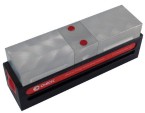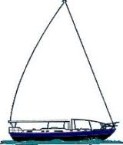Circuit Breakers
Circuit breakers are an important element in circuit protection. When a circuit breaker detects a fault caused by overload, a power surge or a short circuit, the switch will automatically turn off and interrupt the power supply. In this way, the circuit is protected from more serious damage. Afterwards it can be reset either manually or automatically. Circuit breakers are available in a number of sizes depending on voltage class, current rating and the type of circuit breaker. One of the most common are standard circuit breakers. They can be single-pole, which is adequate for most domestic installations and double-pole which is necessary for larger appliances such as dryers. The Ground Fault Circuit Interrupter (GFCI) is another form of circuit breaker. It is more commonly used where there is water such as bathrooms or outdoor areas. AFCI (Arc Fault Circuit Interrupters) respond to a sustained amount of heat rather than power surges and can prevent electric fires. Some modern buildings are now being installed with CAFCI (Combination Arc Fault Circuit Interrupters). Circuit breakers can be found wherever there are electric currents though their installation would depend on the power needs of the building. Industrial facilities would not use the same system as private residences.
-
1st Machine Tool Accessories Ltd
View company profileAt 1st Machine Tool Accessories, we provide a one-stop shop for all your workholding and machining requirements. We only stock the best items from top manufacturers. We pride ourselves in providing our customers with peace of mind and satisfaction.
We stock a fantastic range of workholding and machine tool accessories, including clamping equipment, chuck jaws, machine vices, and precision machine mounts. We also stock larger items required with production machining processes, including rotary tables suited for all manner of application and the widest range of bar feeders on the market.
-
E-T-A Circuit Breakers Ltd
View company profileWe provide comprehensive and globally renowned solutions for your electronic systems. For the design and production of circuit breakers for equipment protection, we provide superior services, unmatched throughout the field.
We also offer the widest range of products for circuit protection in every industrial application. Our unrivalled supply of circuit protection devices includes:
- Thermal overcurrent circuit breakers
- Thermal-magnetic overcurrent circuit breakers
- Hydraulic-magnetic and magnetic overcurrent circuit breakers
- High performance circuit breakers and battery switches
-
JPR Electronics Ltd
View company profileEstablished for over 35 years JPR Electronics are an independent electronics distributor offering a wide range of components and assemblies, with a highly flexible approach to our customers needs.
- Prices are amongst the most competitive available in the UK
- All products supplied from stock. Schedules and call-offs are welcome.
- Our full range of products can be viewed on our website. Orders can be placed online or by phone, fax or email for same day despatch.
-
Sinolec Components Ltd
View company profileSinolec are a distributor of high quality electrical components since 2004, supplying our range of selected electro-mechanical components to businesses and consumers since 2004. Our main ranges include ; switches, IEC sockets, lighting components, circular connectors, fuses and thermal protection, potentiometers and battery isolator switches.
-
Neyland Marine Services Ltd
View company profileAs a leading Marine Electronic and Electrical Engineering company based in South West Wales & Bristol, NEYLAND MARINE provides unequalled sales and service to the pleasure boating, fishing and shipping industry.
Our Offices and Workshop, including Electrical Workshop, Electronics/Instrument Room, are situated at Unit 52, Honeyborough Business Park, Neyland where we can offer the boat owner a complete electrical and electronic facility.
Company principals are Experienced Qualified Marine Personnel with sea going time who understand the requirements of Modern Marine Maintenance.





